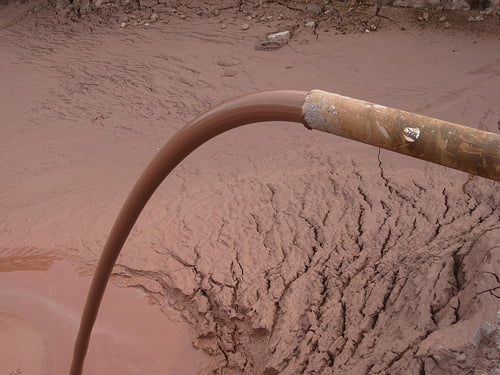Industrial waste is one of modern society’s major problems. While environmental legislation and enforcement require industrial plants to take care of the sludge they create through a clean purification process, it often ends up a poisonous and dangerous one.
In countries like Israel, for example, the usual process is to transfer the harmful materials to the south where they were burned and buried there. Reason being that this area is the less inhabited part of the country.
However, this kind of process is not exclusive to Israel and is being conducted in different shapes and forms all over the world, but there are other, cleaner solutions.
Take Ecology Services Ltd. for instance. This Israeli plant, has readjusted an existing technology to work towards reducing the harmful substances and recycling another part of them. And the cost of treatment was even lowered in the process.
“This is a method we refer to as 20-80: 80% decreases in volume, 20% saving in costs,” says Alexander Mangold, CEO of Ecology Services. “Instead of burning 100% of the material, we burn only 20%. The cost for treating one ton of sludge as is prevailing in today’s industry is $1,000 to 1,200. The cost we suggest is 20 to 40 percent lower.”
However, it appears that the technology is not a new one. “Here we have a technology of a double-jacket drier built of two layers,” Says Oded Kakhla, system designer. “The substance is inside, and is surrounded by hot water. The hot water causes the evaporation of the liquid inside the sludge, which evaporates in the form of gas. After the gas is condensed into clear liquid, it is sold to be reused in industry. The solid material may use as a source of energy, or be buried as a harmful substance”.
The process is supervised by a computing system which enables control to prevent any mishaps in the plant. The system can handle different kinds of sludge, from the printing industry or the pharmaceutical industry, for example.
Sign up for our free weekly newsletter
SubscribeLet’s take a printing manufacturer such as Hewlet Packard for example. What would be the advantage for a company like that to use your product? “The law today does not exempt manufacturers from their responsibility for their waste after the product has reached the client. Therefore, HP is still responsible for its waste at the end site”.
The technology will be presented for the first time at WATEC, the international exhibition of water technologies and cleantech technologies, which will take place in Israel in November this year.
“We took an existing technology from the food and pharmaceutical industry and adjusted it to the treatment of waste, says Kakhla.
“Our dryer was previously used in the American toothpaste industry, by the Colgate company, where it served to thicken the paste”, says Mangold.
The plant handles not only sludge, but also other kinds of industrial waste, and is operating according the principle of the “4 R’s” – Recycle, Reduce, Reuse and Recover. There is a visitors’ center at the plant where these principles are explained to groups, among them are of school students who come to visit.
…
To read and watch the full article, click here.
Via ntdtv.com
Photo by CDEGlobal
Related posts

Resilient And Nutritious New Plant-Based Milk Aims To Make A Splash

Chocolate From Cultivated Cocoa Comes Without Environmental Toll

Plastic Fantastic: Startup Takes PVC Back To Its Crude Oil Roots




Facebook comments